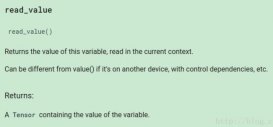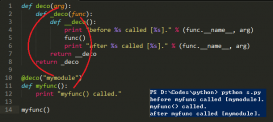本文實(shí)例講述了python通過(guò)裝飾器檢查函數(shù)參數(shù)數(shù)據(jù)類型的方法。分享給大家供大家參考。具體分析如下:
這段代碼定義了一個(gè)python裝飾器,通過(guò)此裝飾器可以用來(lái)檢查指定函數(shù)的參數(shù)是否是指定的類型,在定義函數(shù)時(shí)加入此裝飾器可以非常清晰的檢測(cè)函數(shù)參數(shù)的類型,非常方便
def check_accepts(f):
assert len(types) == f.func_code.co_argcount, \
'accept number of arguments not equal with function number of arguments in "%s"' % f.func_name
def new_f(*args, **kwds):
for i,v in enumerate(args):
if types.has_key(f.func_code.co_varnames[i]) and \
not isinstance(v, types[f.func_code.co_varnames[i]]):
raise exception("arg '%s'=%r does not match %s" % \
(f.func_code.co_varnames[i],v,types[f.func_code.co_varnames[i]]))
del types[f.func_code.co_varnames[i]]
for k,v in kwds.iteritems():
if types.has_key(k) and not isinstance(v, types[k]):
raise exception("arg '%s'=%r does not match %s" % \
(k,v,types[k]))
return f(*args, **kwds)
new_f.func_name = f.func_name
return new_f
return check_accepts
def exmaple():
@accepts(Exception,a=int,b=list,c=(str,unicode))
def test(a,b=None,c=None)
print 'ok'
test(13,c=[],b='df')
希望本文所述對(duì)大家的Python程序設(shè)計(jì)有所幫助。












